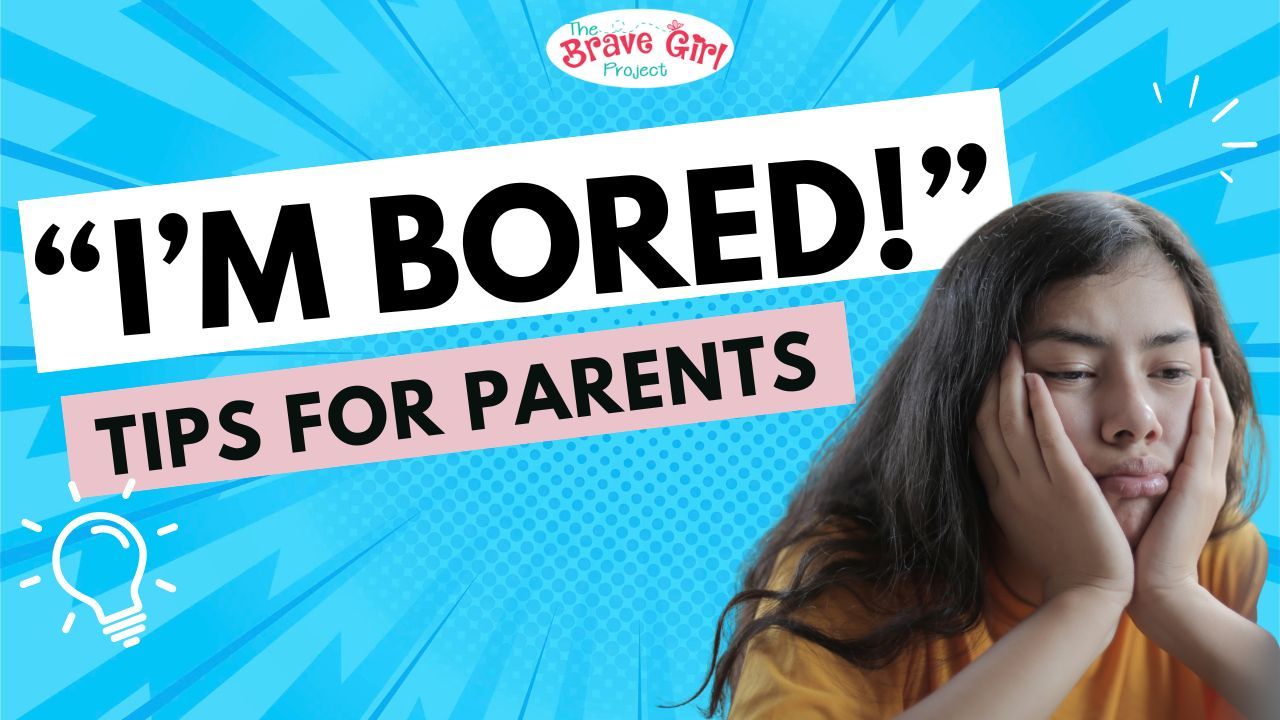The Brave Girl Project Blog
Helping tween and teen girls—and their parents—navigate friendship challenges and build confidence. Find the tools and resources you need to support your daughter and empower her to live bravely.
It’s the cry we hear a lot by mid-July: “I’m bored!”
And as parents, it can be tempting to swoop in with a solution — a camp, a screen, a plan, a project.
But what if we didn’t?
What if we took a deep breath, nodded with empathy, and saw boredom not as a problem — but as an opportunity?
Here’s the...
Summer is supposed to feel carefree, but for many tweens and teens, it can stir up unexpected friendship worries.
Without the daily rhythm of school, it’s easy for friendships to feel off balance:
-
Texts go unanswered.
-
Group chats slow down.
-
Friends are away on vacation, at camp, or s
...
As I prepare to watch my son graduate from high school (wait - how did the time go by so quickly!) and step into a new chapter of his life, I’ve been reflecting on the evolving relationship between parents and teens.
Recently, I listened to Lisa Damour’s latest podcast episode, "How to Stay Connec...
As we move into the final stretch of the school year, many families are celebrating seasons of reflection, renewal, and hope. These themes feel especially meaningful as our daughters return from spring break or simply push through the long weeks ahead.
The last months of the school year can feel to...
We talk a lot about red flags—the warning signs in friendships and dating relationships. But what about the green flags?
Green flags are the signs of healthy, positive, and uplifting relationships—the kind that help your daughter feel safe, valued, and supported. They help her recognize who is trul...
Forgiveness can be a tricky topic, especially for girls navigating friendships, conflicts, and emotional ups and downs. Many of us were raised with the idea that forgiveness means forgetting or letting someone back into our lives, but true forgiveness is about finding peace—without sacrificing our ...
Friendships are a huge part of a girl’s life, but not all friendships are healthy. Sometimes, a friend may not be as supportive as they seem, leaving your daughter feeling confused, hurt, or unsure of where she stands.
In my latest episode of The Brave Girl Project Podcast, I dive into the trick...
Do you ever find yourself unsure how to help your daughter navigate the ups and downs of friendships?
You’re not alone—many parents share this challenge.
In fact, parents often reach out to me expressing how difficult it can be to deal with their daughters’ friendship issues.
For some, these stru...
Unlock Your Motivation Toolkit – Get Ready to Inspire Action!
Last week in our virtual High School and Brave Tribe groups we explored practical tips for staying motivated and shared how important it is to set goals, visualize success, and celebrate every victory. A big thank you to everyone who joi...
As the lazy days of winter break come to an end, the thought of jumping back into the school routine can bring about a case of the back-to-school blues for students and parents alike. But worry not! We've put together effective strategies and personal tips to help make this transition smoother and m...
As we get ready to step into 2025, it's the perfect time to pause, reflect, and plan for the months ahead.
Many of us set resolutions with the best intentions, but often, we don’t have a clear plan on how to achieve them.
This year, let’s do it differently with a simple yet powerful tool that I’m...
As the year draws to a close, I recently had the chance to spend some time with some of my favorite teacher friends. During our discussions, we explored what children and teens truly need to succeed. Unanimously, we recognized one critical skill that underpins many others: the ability to navigate di...


















